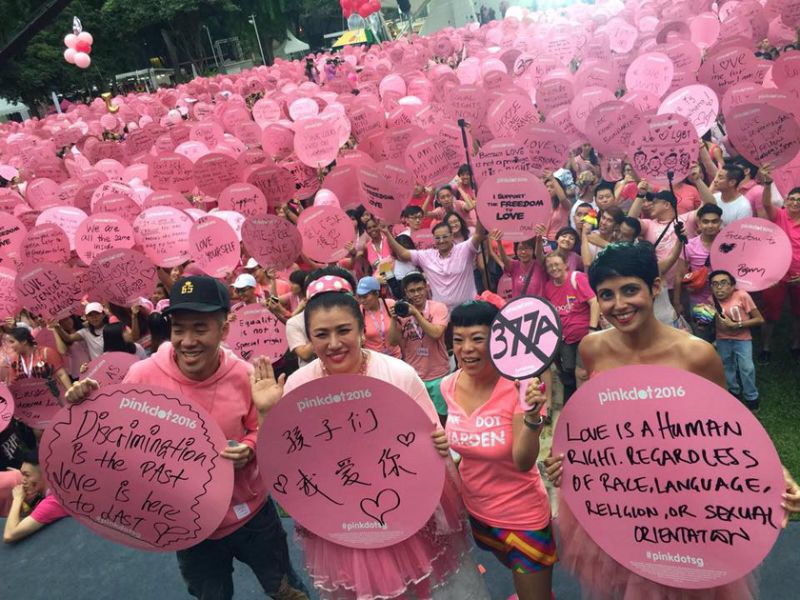Singapore Parliament votes to decriminalize gay sex
Singapore’s Parliament voted to repeal its colonial-era laws criminalizing sex between men while also endorsing a constitutional amendment that prevents court challenges to the heterosexual definition of marriage on Tuesday, November 28. The vote drops the number of countries that criminalize gay sex to 68.

Parliament voted 93-3 to repeal the ban on gay sex, after the government announced it was whipping its 83 MPs to vote in favor of the bill.
The colonial-era law, section 377A of the Penal Code, previously exposed men to imprisonment of up to two years for “gross indecency.”
The repeal comes after several unsuccessful court challenges sought to have the law declared unconstitutional. In February of this year, the Constitutional Court ruled that although the law was constitutional, it could not be enforced unless the government formally reversed its policy that it would not enforce the law.
The decision inspired controversy domestically and abroad, until the government announced in August that it would table a bill to repeal the law.
At the same time, the government announced that it would introduce an amendment to the constitution to ensure that the courts could not force the government to accept same-sex marriage.
The amendment asserts that only Parliament may define what constitutes a marriage, thus blocking any court challenges seeking same-sex marriage rights, but leaving Parliament free to legalize same-sex marriage in the future by a simple majority vote. The amendment passed on an 85-2 vote.
Singaporean LGBT support group Oogachaga posted a celebratory note on its Facebook page.
“![]() And about time too! We are 15 years late, but better late than never.
And about time too! We are 15 years late, but better late than never. ![]()
![]() Oogachaga volunteers and staff have been proudly involved at various stages in various capacities, from the Parliamentary petition in 2007, 2 rounds of constitutional legal challenges from 2010-2014 & 2018-2022, & in the latest round of Parliamentary repeal,” the post said.
Oogachaga volunteers and staff have been proudly involved at various stages in various capacities, from the Parliamentary petition in 2007, 2 rounds of constitutional legal challenges from 2010-2014 & 2018-2022, & in the latest round of Parliamentary repeal,” the post said.
Law and Home Affairs Minister Kasiviswanathan Shanmugam told Parliament that most men convicted under the law involved acts on non-consenting victims or minors, or acts committed in public. But for those whose convictions would not otherwise have formed crimes, his ministry is working on an expungement or pardoning scheme.
“There is a small number of individuals who were convicted between 1988 and 2007 for consensual, private, homosexual acts, between adults. I have instructed my ministry to consider how the records of these persons can be rendered spent proactively,” Shanmugam said.
Singapore is the third country to decriminalize gay sex in 2022, after the Eastern Caribbean Supreme Court ruled in July and August that criminal provisions against gay sex in Antigua & Barbuda and St. Kitts & Nevis were unconstitutional. All three states are former British colonies that inherited their anti-gay laws from their colonial administrations.




LGBTQ counseling on Giving Tuesday: Give a much-needed double boost to Qtalk